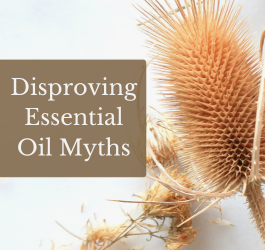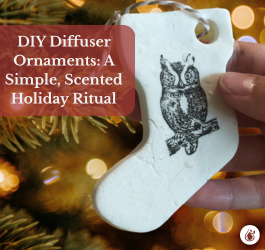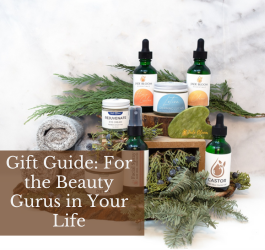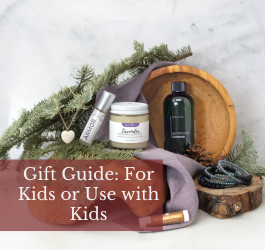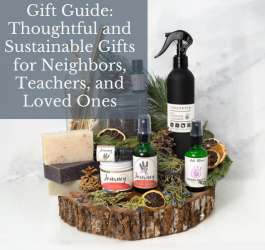Over the years, there has been a great deal of misunderstanding and misinformation about essential oils and aromatherapy. So much unreliable information can make it difficult to know what to actually believe. The widespread misinformation has resulted in quite a few incredibly popular essential oil myths. Our goal is to help debunk these myths and provide education about the reality of safe, effective essential oil use.
Myth #1: The best place to apply essential oils is the soles of your feet
While it is true that the bottoms of the feet are indeed very porous, these pores are primarily sweat glands which are great for secreting, not absorbing. Because of this, they are not a reliable delivery method to the blood. Instead, the arms, back, legs, and abdomen are much more effective locations for applying essential oils topically, but be sure to always dilute an essential oil with a carrier oil first.
Myth #2: You get what you pay for with essential oils
While it can sometimes certainly be true that higher quality, 100% pure essential oils will cost more, this is by no means always the case. You can also just as easily overpay for what you get in terms of essential oils. Before buying from a company, always do research on the quality of their oils (including looking at third-party testing) and on the company itself rather than judging it based on the prices of their oils.
Myth #3: Essential oils as we know them today have been around for thousands of years, including in biblical times
It is true that aromatic materials including extracted oils were used as far back as biblical times. However, essential oils as we know them are created through the steam distillation process and steam distillation wasn’t discovered until the 11th century.
Myth #4: 100% pure essential oils won’t expire or deteriorate
No matter the quality, all essential oils will eventually oxidize and break down over time, meaning they will ‘go bad’ at one point or another. Essential oils can last longer with proper care of your essential oil bottles such as storing them in a dark, cool place and keeping the lids on tight. Oils that have ‘gone bad’ or oxidized can still be used in other ways such as in homemade cleaning recipes.
Myth #5: A rash or burn from essential oils is just your body ‘detoxing’ and is good for you
Arguably the most harmful essential oil myth out there, this myth can result in damage or injury. A rash or burn from essential oil use is not a good thing and is a sign that you need to either dilute the essential oil more (or at all if you haven’t been), use it less frequently, or stop use of that essential oil altogether.
Myth #6: It is safe and beneficial to add essential oils straight to your drinking water
Adding essential oils straight to drinking water isn’t safe or a good idea because oil and water do not mix. Because the oil cannot properly mix in with the water, the oil will not be diluted when it makes contact with your mouth, esophagus, and stomach. There are safe ways to ingest some essential oils, but adding it straight to drinking water is not one of those ways. To learn a bit more about Jade Bloom’s stance on essential oil ingestion visit: JadeBloom.com/Ingest
Myth #7: Essential oils are always safe because they are natural
Just because something is natural or 100% pure does not mean that it is always safe to use. Anything ‘natural’ can still be unsafe when used incorrectly, but as long as you are doing your research on each oil you are using, always properly diluting your oils, and paying attention to who should and shouldn’t be using certain oils, you can get the benefits of the essential oils without as many risks.
Myth #8: Essential oils contain vitamins, minerals, and hormones in them
This is incorrect, essential oils are inactive plant molecule compounds. The molecules in essential oils are mainly monoterpenes and sesquiterpenes and their oxygenated derivatives. There are no hormones, minerals, or vitamins within essential oils.
Always remember that there is no such thing as a cure-all and that essential oils, like anything else that can be incredibly beneficial for the mind and body, have risks that you should always try to be aware of. Be conscious of the misinformation that does exist out there about aromatherapy and never take one person’s word as truth. Continue to do research, explore and grow in the aromatherapy world, and don’t be afraid to reach out and contact a certified aromatherapist whenever you have specific questions.


